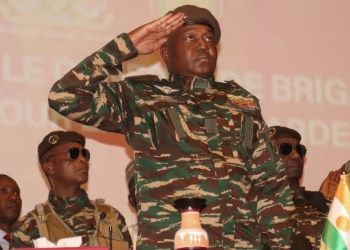In Bangladesh, the death toll has risen to at least 76 amidst escalating clashes between police and anti-government demonstrators. The unrest coincides with a civil disobedience campaign led by student leaders demanding the resignation of Prime Minister Sheikh Hasina.
In the district of Sirajganj, thirteen police officers were killed when a mob attacked a police station. What began as a protest against quotas in civil service jobs has evolved into a broader anti-government movement. Both police and supporters of the ruling party have engaged in violent confrontations with protesters, involving live ammunition, tear gas, and rubber bullets.
The total casualties since the protests began in July now exceed 270. A nationwide curfew has been enforced since 18:00 (12:00 GMT), and mobile internet access in Dhaka has been suspended indefinitely, severely restricting communication.
Law and Justice Minister Anisul Huq defended the government’s response, stating that they have shown restraint to prevent further bloodshed. Despite government efforts to quell the unrest, violence has spread across the country, with reports of deaths and injuries in several districts.
The situation remains tense as both sides prepare for the days ahead. The student-led protests, which initially focused on job quotas, have escalated to demand justice for the victims and the resignation of Prime Minister Hasina. The government has faced criticism for its handling of the protests, which have led to widespread arrests and accusations of excessive use of force.
As Bangladesh grapples with this crisis, the international community watches closely, concerned about the implications for stability and human rights in the region.















